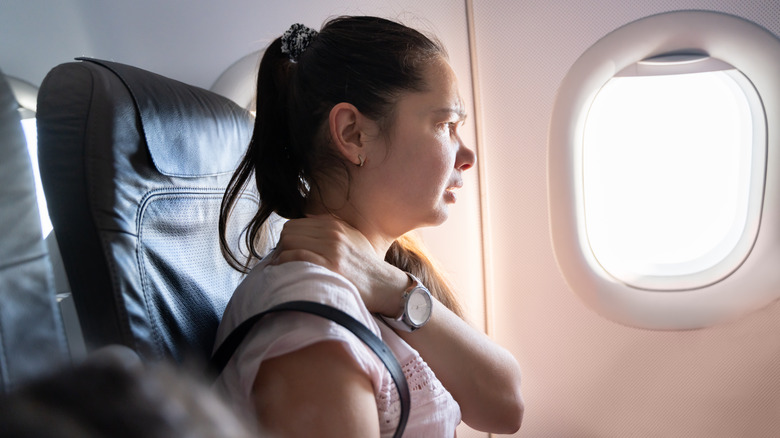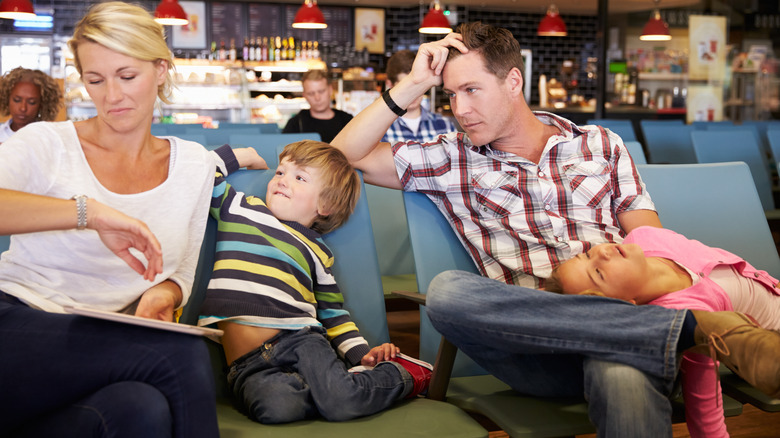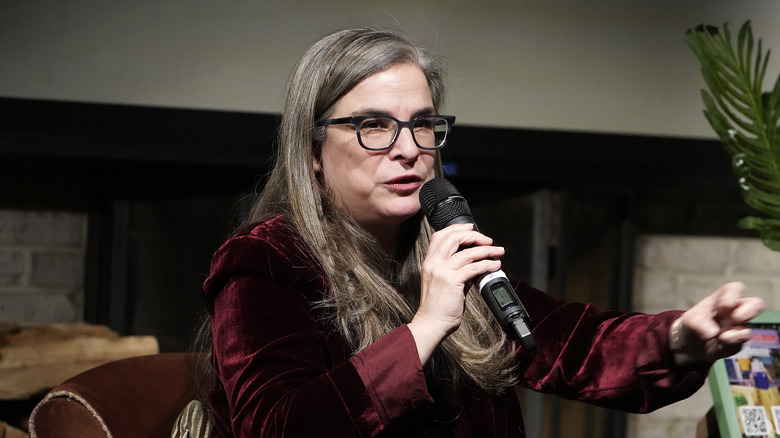We’ve all seen the viral clips of disorderly passengers, and if you’re unlucky, you may have even shared a flight with one before. According to the International Air Transport Association, bad in-flight behavior is on the rise, with one unruly incident taking place on every 568 flights in 2022 compared to one incident per 835 flights just one year earlier. The worst offenses, according to the organization, include refusing to follow directions, verbal abuse, and even physical aggression.
While these faux pas might be easy enough for the average traveler to avoid, there are still other etiquette mistakes many of us are guilty of making. Pauline Frommer, a travel expert and the co-president of FrommerMedia, shared her tips for being a polite passenger during a 2015 interview with 1000 Travel Tips — and they still hold up today.
The first no-no to avoid, according to Frommer, is taking up space that isn’t yours. The guidebook author says to be mindful of the armrests in particular. “You have to have great sympathy for whoever gets stuck in the middle seat,” she explained. “And to my mind, they own both those armrests, so do not crowd them out of those armrests.”
Embrace discomfort

For many passengers, frustration (and, as a result, rude behavior) is the aftereffect of dealing with cramped seats and limited legroom. To cope, Pauline Frommer told 1000 Travel Tips that it’s best to choose an aisle seat when possible to avoid feeling trapped or having to bug your neighbor every time you want to get up.
Regardless of the seat you’re in, however, the travel guru suggests accepting discomfort and viewing it as just a temporary part of the journey. She shared with Money, “I think it is a huge waste of money to buy business class or first class unless you’re 6’4″ and will be in incredible agony.” Instead of insisting on being comfortable, Frommer advised travelers to tolerate minor annoyances for the brief duration of the flight. “People concentrate too much on the flight. It is a couple of hours and then you’re in this wonderful destination,” she said.
Act with empathy

When asked about unruly travelers on an episode of the “Bottom Line Advocator” podcast, Pauline Frommer held off on shaming passengers or complaining about the uptick in conduct issues. Instead, she suggested we all take a more empathetic approach when observing our fellow passengers.
Frommer argued that while problems do occur on planes, they aren’t so different from the conflicts we would run into in everyday life. “Sometimes people are slovenly, or they are rude, but that’s everywhere,” she explained, noting that disagreements may seem worse only because of travel-related stress.
Speaking of stress, Frommer said that one of the best things you can do to be a polite airplane passenger is to help others who may be especially under stress, such as parents. “When I see a young family on a flight, as a mom, I try to help them. … I spend a lot of time playing peek-a-boo with toddlers and smiling at parents because I think that, you know, kids sometimes misbehave on planes because they pick up the stress their parents feel.” Approaching others with such compassion could help alleviate their anxiety and, in turn, lead to a better flight experience for everyone on board.

